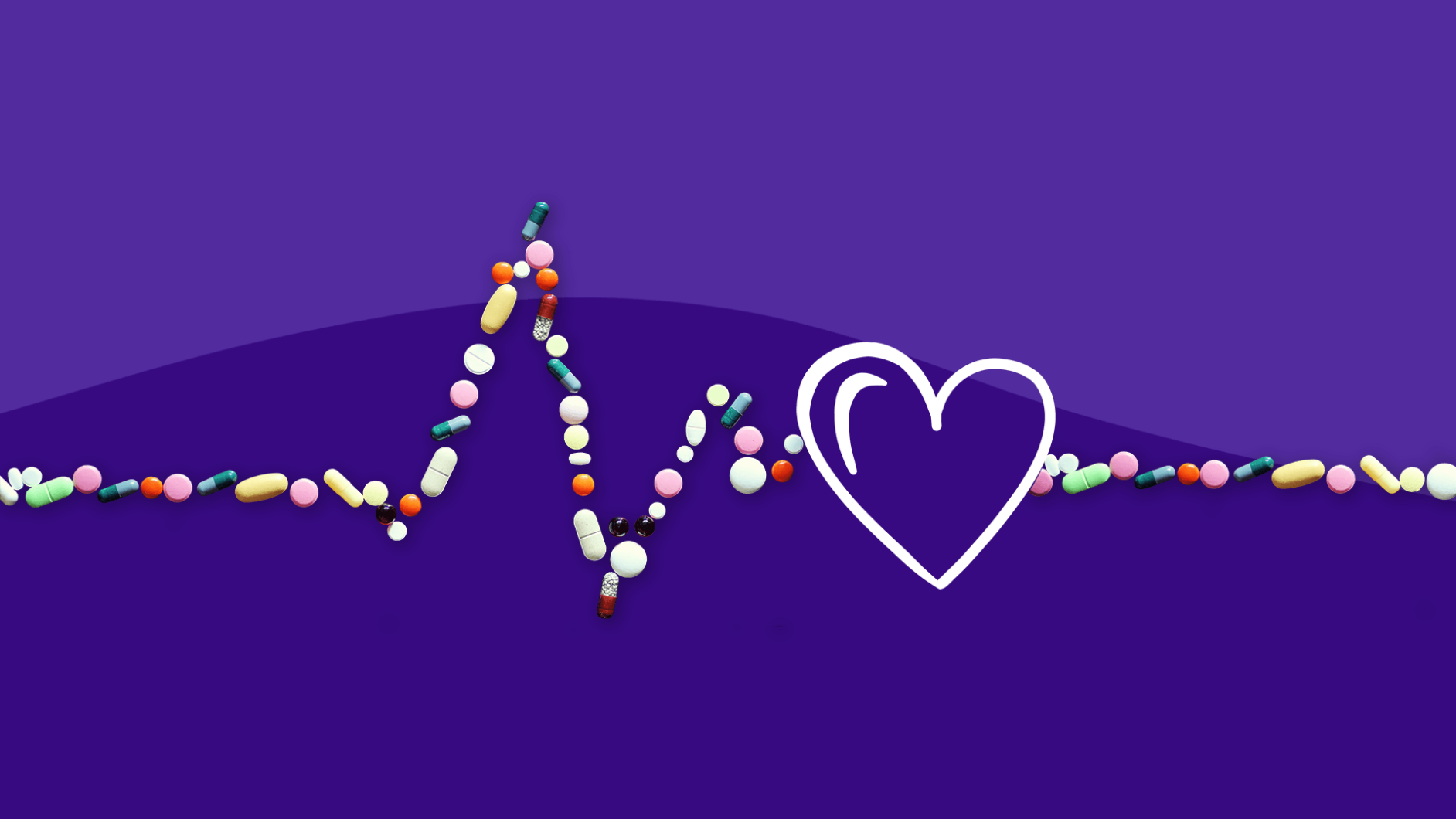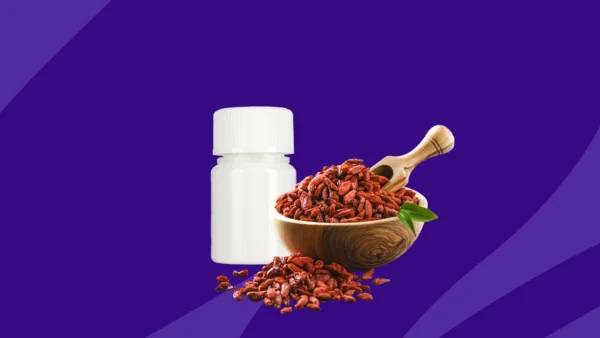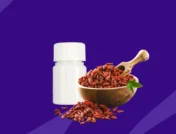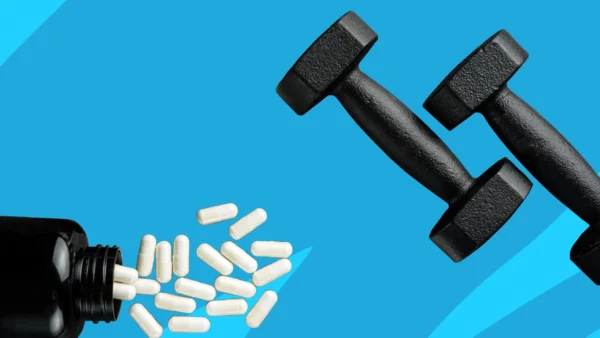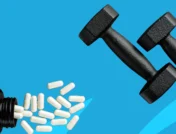If you’ve recently been diagnosed with high blood pressure, elevated cholesterol, or prediabetes, chances are you’re looking for ways to lower your risk of developing heart disease and preventing a heart attack or stroke. Healthcare providers agree that being physically active, eating nutritious foods, reducing stress, and maintaining a healthy weight are all important components of a heart-healthy lifestyle. The role supplements for heart health play can often be confusing.
What are the best heart health supplements?
“While there are many great supplements that can benefit heart health, none of them are a magic pill against heart disease,” says Gina Sirchio-Lotus, doctor of chiropractic, certified clinical nutritionist, functional medicine physician, and owner of the LG Institute of Health in Chicago, Ill. “Supplements are best used as part of an overall heart health plan that includes a healthy diet, regular exercise and good sleep habits.”
There are seven nutrients that can be a good addition to a heart-healthy lifestyle:
- Omega-3 fatty acids
- Magnesium
- Inositol
- Folate
- Grape seed extract
- Coenzyme CoQ10
- Vitamin D
7 supplements for heart health
Since nutritional supplements aren’t regulated by the Food and Drug Administration (FDA), Sirchio-Lotus recommends speaking with your physician before you begin taking any new supplement.
“Supplements provide wonderful health benefits, but can also be problematic, since they can sometimes interact with each other, as well as over-the-counter and prescription medications,” Sirchio-Lotus says. A discussion with your healthcare team or your pharmacist can help you to avoid any unexpected side effects.
1. Omega-3 fatty acids
Fatty fish—such as sardines, mackerel, and salmon—is full of omega-3 fatty acids and has been associated with lowering triglycerides, blood pressure, inflammation, along with reducing the risk of heart disease and stroke. In addition to fish, flaxseed oil, chia seeds, walnuts, and canola oil are also high in omega-3s. A blood test can check your omega-3 levels and if you’re deficient, your healthcare provider may suggest a supplement. A target dose of 1 gram per day of an omega-3 supplement is considered a good place to start. However, some physicians may advise their patients to increase their dosage if they have very high levels of triglycerides.
“Omega-3 fish oil supplements have been shown to increase (good) HDL levels of cholesterol, while reducing plaque buildup in the arteries,” says Abe Malkin, MD, a board-certified family medicine physician and founder of Concierge MD in Los Angeles, California.
A study published in a recent issue of the European Heart Journal, found that the medication, Vascepa (icosapent ethyl), not only helped to reduce plaque in the heart’s arteries, but also reduced the risk of heart attack and stroke by 26% in those at an increased risk of heart disease. Originally approved by the FDA in 2012 to reduce triglycerides, Vascepa received an additional indication approval in 2019 as an adjunct therapy for reducing cardiovascular risk. Vascepa is made from a highly-purified form of EPA, an omega-3 fatty acid found in fish). It is the first FDA-approved drug to reduce cardiovascular risk among patients with elevated triglyceride levels as an add-on to statin therapy.
2. Magnesium
Your body needs magnesium to function properly, yet research shows that up to 50% of Americans are magnesium-deficient. Low magnesium levels have been linked to high blood pressure, plaque buildup, and high cholesterol. “A low dose magnesium supplement can lower cortisol, the body’s primary stress hormone,” Dr. Malkin says. “Cortisol also plays an important role in helping to control blood sugar levels and reduce inflammation.”
One study showed that magnesium also helped to lower blood pressure by up to 12 points, decrease the risk of heart attack, and to improve insulin resistance.
3. Inositol
A carbohydrate found in our bodies, Sirchio-Lotus says inositol can also help blood sugar control by improving insulin sensitivity. “In addition to adopting a healthy eating plan that’s rich in nutrients and low in fat and calories, and losing weight, inositol can reduce insulin resistance,” she says. One study found that women who took 4 grams of inositol each day improved their insulin sensitivity, blood pressure, and cholesterol levels—all factors that can decrease your risk of heart disease.
4. Folate (folic acid)
This B vitamin has been shown to lower heart attack and stroke risk in people with high blood pressure. While folate is best when consumed in foods such as vegetables, beans, and citrus fruit, some people with celiac disease or an inflammatory bowel disease like Crohn’s may need a folate supplement. “If you’re deficient in folate, there’s really no downside in taking a supplement,” Dr. Malkin says. One study found that folic acid, taken on a daily basis, could reduce the risk of stroke.
Certain medications—such as Rheumatrex (methotrexate), used to treat autoimmune disorders, or seizure drugs such as Dilantin (phenytoin)—can also affect how the body absorbs folate. Talk to your physician before starting a folate supplement and to determine the best dosage.
5. Grape seed extract
For those diagnosed with early stage high blood pressure (prehypertension), research has shown that high doses of grape seed extract (GSE) may effectively lower blood pressure. Full of antioxidants, the study found that taking 100mg–800mg of GSE daily for eight to 16 weeks significantly reduced blood pressure.
6. Coenzyme CoQ10
While CoQ10 appears naturally in the body, you can also boost your intake by including foods such as salmon, tuna, broccoli, and cauliflower in your diet.
For those already taking cholesterol-lowering statin medication, Sirchio-Lotus, says adding a CoQ10 supplement can reduce the muscle aches and joint pain some people experience as a side effect of statins. “In many other countries, doctors recommend patients take both stains and CoQ10,” Sirchio-Lotus says.
Some research shows CoQ10 may help to lower blood pressure, while another recent study found that people with high triglycerides, high cholesterol, and a history of heart attack saw an improvement in both their LDL and HDL cholesterol levels and blood pressure after taking 200 mg of CoQ10 daily for 12 weeks.
7. Vitamin D
According to Dr. Malkin, vitamin D can benefit both your heart and overall health by protecting bones, increasing energy, and regulating insulin levels. One study found that boosting vitamin D levels by sun exposure (five to 10 minutes, two to three times per week), eating foods rich in vitamin D (eggs, cheese tuna, fortified milk, cereals and juices) or taking a supplement, could lower high blood pressure. Other studies have found that vitamin D might help to prevent strokes and reduce the risk of diabetes.
“If a blood test shows that someone is deficient in vitamin D or even in the low-normal levels, their doctor may recommend starting with a vitamin D supplement,” explains Dr. Malkin, who says 2000 IU per day from a supplement is generally safe.
What supplements are bad for your heart?
And while the above supplements benefit heart health, doctors recommend exercising caution with the following.
1. Calcium
While a diet rich in calcium promotes strong bones and a healthy heart, too much calcium can cause health problems. One study found that taking calcium supplements might increase plaque buildup in the aorta and other arteries. The study went on to recommend eating a diet high in calcium-rich foods, rather than taking a calcium supplement.
If tests show you’re deficient in calcium, your healthcare provider may recommend taking a supplement. Doses ranging from 500 mg to 700 mg should be plenty, unless your doctor specifically tells you to take more.
2. Grapefruit juice
Drinking a glass of grapefruit juice may sound like a healthy idea, but Sirchio-Lotus says it can be dangerous when taken with certain high blood pressure and cholesterol medications. She recommends talking with your doctor to see if your specific medication will negatively interact with grapefruit juice.
3. Herbal supplements
Avoid bitter orange, gingko, ginseng, licorice, and St. John’s Wort. They all have the potential to raise blood pressure and may also interfere with blood pressure medications.
How to choose a heart health supplement
When choosing heart health supplements, Sirchio-Lotus recommends looking for products that don’t contain unwanted ingredients such as artificial colors or fillers.
Before going the supplement route, talk to your healthcare team about getting tested to see if you’re deficient in certain nutrients.
Also, look for supplements that have the USP Verified mark. USP is an independent, non-profit organization that sets federally recognized public standards of quality for dietary supplements. Their approval indicates the product has met high-quality standards.



